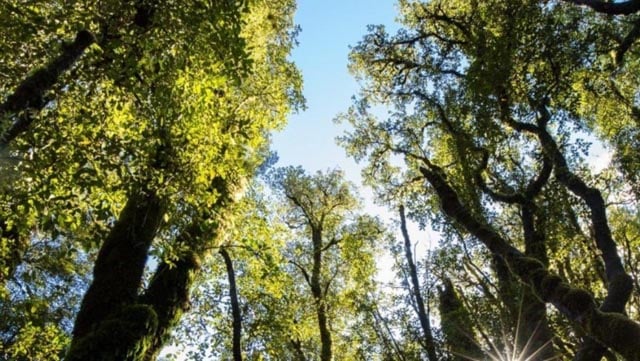News Flash
News Flash

WELLINGTON, June 18, 2025 (BSS/AFP) - New Zealand's native forests may be absorbing vastly more carbon dioxide than previously thought, a new study shows, offering a potential boost as the country seeks to meet emission-cutting targets.
The research, led by National Institute of Water and Atmospheric Research (NIWA) scientist Beata Bukosa and co-authored by Ministry for the Environment scientists, used advanced modelling and the organisation's supercomputer to examine a decade of atmospheric data from 2011 to 2020.
Earlier estimates had found New Zealand's land ecosystems removed between 24 million and 118 million tonnes of carbon each year.
"Our research found that New Zealand's natural environment absorbed approximately 171 million tonnes of carbon dioxide annually," Bukosa said.
The biggest difference between earlier estimates and Bukosa's research was in New Zealand's South Island.
A pilot study in 2017 had suggested Indigenous forests in Fiordland, a largely unpopulated region in southwest New Zealand, could have been absorbing more carbon than expected.
"That study was based on only three years of data, and we weren't sure if it was just a transient effect related to the climatic conditions, or if the effect was confined to Fiordland," Bukosa said.
"Our new study shows the carbon sink is more widespread than we thought, particularly across the South Island, with greater uptake of carbon dioxide extending up the West Coast.
"This was especially in areas dominated by mature native forests and certain grazing lands."
Bukosa said the study showed the extra carbon uptake had persisted for at least a decade.
The question now is whether the new data could be added to New Zealand's climate reporting, easing the strain as it seeks to meet climate commitments.
NIWA principal scientist Sara Mikaloff-Fletcher said New Zealand is projected to need an extra 84 million tonnes of emissions reductions to meet its 2030 obligations under the Paris Agreement.
"This research suggests that we could make the most of opportunities to slow climate change through changes to land management," Mikaloff-Fletcher said.
"In addition to reducing the need for overseas offsets, better management of our native forests and other lands could enable New Zealand to be long-term stewards of our carbon sinks and offer magnificent biodiversity co-benefits."
Andrea Brandon, a co-author of the study from the Ministry for the Environment, said more work is needed before the numbers could be added to official emissions reporting.
"The findings from this study indicate there may be additional carbon uptake somewhere in the system that we are currently not tracking," Brandon said.
"We need to identify what we are missing so that we can further refine our inventory methods to capture it."
Bukosa echoed those comments.
"We need to better understand why our native forests are absorbing more carbon dioxide than expected, and what this could mean for our efforts to reduce greenhouse gas emissions and achieve our domestic and international targets."
The full study is to be published in the journal Atmospheric Chemistry and Physics.